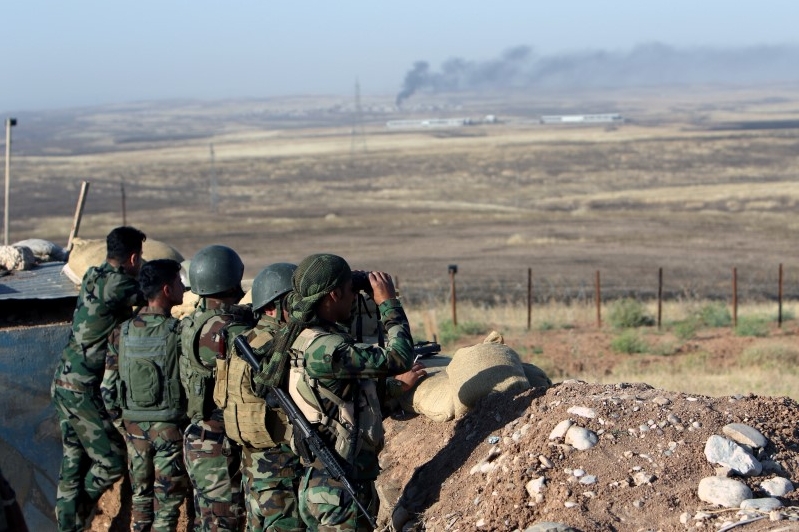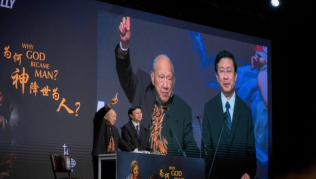
U.S. officials on Thursday called on partners in the coalition against Islamic State to increase information sharing to counter the militant group's expanding reach beyond Iraq and Syria, and said a victory in the northern city of Mosul was now in sight.
Addressing the opening of a meeting of more than 30 defense and foreign chiefs in the U.S.-led coalition, U.S. Secretary of State John Kerry said that while the number of Islamic State fighters is estimated to be down by one third, the group was transforming itself "from a phony state into some kind of global network."
A spate of recent attacks claimed or apparently inspired by Islamic State, such as a truck attack in Nice, France, that killed 84 people last week, formed a grim backdrop to two days of Washington meetings aimed at combating the group.
In the wake of deadly attacks in Paris and Brussels, in particular, the United States has pushed allies to share information on suspected militants, some of whom have easily crossed intra-European borders.
Thursday's meeting was meant as a show of unity in the coalition, but the recent coup attempt in Turkey has raised questions about that country's focus on the fight.
Before Kerry spoke, the head of the Western-backed Syrian National Coalition called for a suspension of the air campaign in Syria, amid reports of dozens of civilians deaths from air strikes around the northern city of Manbij, until the incidents were investigated.
Kerry said breaking down structural barriers was crucial to allow more sharing of information about threats as the group seeks to boost recruitment by adopting new languages and moving into new territories.
"Information sharing has always been a big part of what the coalition does and it is playing a key role in our effort to prevent foreign terrorist fighters from traveling to Syria and Iraq, but it is also clear now that we have to do more," he said.
"We have to keep breaking down the structural and bureaucratic barriers in order to be able to exchange up-to-date information even more quickly and more widely so that a border guard in southern Europe has the same data about a terrorist suspect as an airport security officer in Manila," he added.
Brett McGurk, the United States' envoy to the coalition, told the meeting that the liberation of Mosul, Islamic State's capital in Iraq, "is now in sight."
Iraqi Defense Minister Khalid al-Obeidi said less than 10 percent of Iraqi territory remains in Islamic State's hands, but battlefield advances have not been matched by security gains.
"Progress in military performance must be paired with progress on the security file," he tweeted from Washington.
A suicide bombing claimed by Islamic State this month which killed at least 292 people in central Baghdad in one of the worst such attacks since the U.S.-led invasion in 2003 was a "stark example" of that failure, he said.
Obeidi said the battle to retake Mosul, which has gained momentum since the recapture of Falluja and a northern air base, required air strikes, intelligence, logistics and engineering support.
Driving Islamic State out of Mosul could also strengthen the U.S.-led coalition's efforts in Syria, said German Foreign Minister Frank-Walter Steinmeier.
"The group's structures in Syria and Iraq are intertwined, so that a defeat for Islamic State in Mosul would undoubtedly have consequences for the situation in Syria," Steinmeier told reporters.
Steinmeier expressed disappointment at the number of countries that participated in a donor conference for Iraq on Wednesday, where more than $2.1 billion in aid was raised.
"I wish we had more countries represented at a high level for the financial part," he said.







